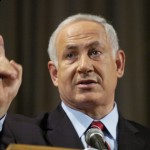Wednesday
Mar312010
Israel-Palestine: Washington's New Strategy for Talks
 Wednesday, March 31, 2010 at 16:50
Wednesday, March 31, 2010 at 16:50
Neither the "proximity talks" nor the proposal to start negotiations on core issues have worked for the Obama Administration. So, what is left?
Looks like Washington's next ploy is to press Israel to give concessions on East Jerusalem in return for direct negotiations with the Palestinian Authority. Indeed, after the recent US-Israeli tension, hints both from the Palestinian Authority and the Netanyahu Government indicate this may be the best option for President Obama and his advisors.
On Monday, an official in Jerusalem said the U.S. administration is demanding a four-month construction freeze in all parts of East Jerusalem including Jewish neighborhoods such as Neveh Yaakov, French Hill, and of course Ramat Shlomo in return for pressure on PA leader Mahmoud Abbas for direct talks.
White House press secretary Robert Gibbs said that the status of Jerusalem is to be evaluated:
On Tuesday, in an interview with MSNBC, Obama said:
On the same day, following a meeting in White House, French President Nicolas Sarkozy said Paris stands with the US in condemning Israeli settlement activity in East Jerusalem and added that the "absence of peace" in the region "is a problem for all of us", feeding terrorism around the world.
A U.S. State Department official has denied an earlier report saying the United States will consider abstaining if the United Nations votes on a resolution condemning Israel's housing construction in East Jerusalem. The U.S. official said that "there is no such initiative before the Council, and we are not pursuing or encouraging any such action."
Looks like Washington's next ploy is to press Israel to give concessions on East Jerusalem in return for direct negotiations with the Palestinian Authority. Indeed, after the recent US-Israeli tension, hints both from the Palestinian Authority and the Netanyahu Government indicate this may be the best option for President Obama and his advisors.
Visit msnbc.com for breaking news, world news, and news about the economy
Middle East Inside Line: Gaza Border Death, Britain to Review Arms to Israel, Obama’s Passover Message
Palestine Video & Analysis: Saeb Erekat’s Speech at Birmingham (Yenidunya/Baghdady)
On Monday, an official in Jerusalem said the U.S. administration is demanding a four-month construction freeze in all parts of East Jerusalem including Jewish neighborhoods such as Neveh Yaakov, French Hill, and of course Ramat Shlomo in return for pressure on PA leader Mahmoud Abbas for direct talks.
White House press secretary Robert Gibbs said that the status of Jerusalem is to be evaluated:
Again, our view on this, as, again, the view of many administrations prior to ours, are that the issues around Jerusalem are important and they’re final status issues. We think that coming to the table, coming back to the table, developing the type of confidence and trust that both sides need in these proximity talks, is important to building a process to getting to those final status issues.
On Tuesday, in an interview with MSNBC, Obama said:
I think Prime Minister Netanyahu intellectually understands that he has got to take some bold steps. I think politically he feels it. But it's not just on the Israeli side. I've been very clear that the Palestinians have to take steps.
On the same day, following a meeting in White House, French President Nicolas Sarkozy said Paris stands with the US in condemning Israeli settlement activity in East Jerusalem and added that the "absence of peace" in the region "is a problem for all of us", feeding terrorism around the world.
A U.S. State Department official has denied an earlier report saying the United States will consider abstaining if the United Nations votes on a resolution condemning Israel's housing construction in East Jerusalem. The U.S. official said that "there is no such initiative before the Council, and we are not pursuing or encouraging any such action."



